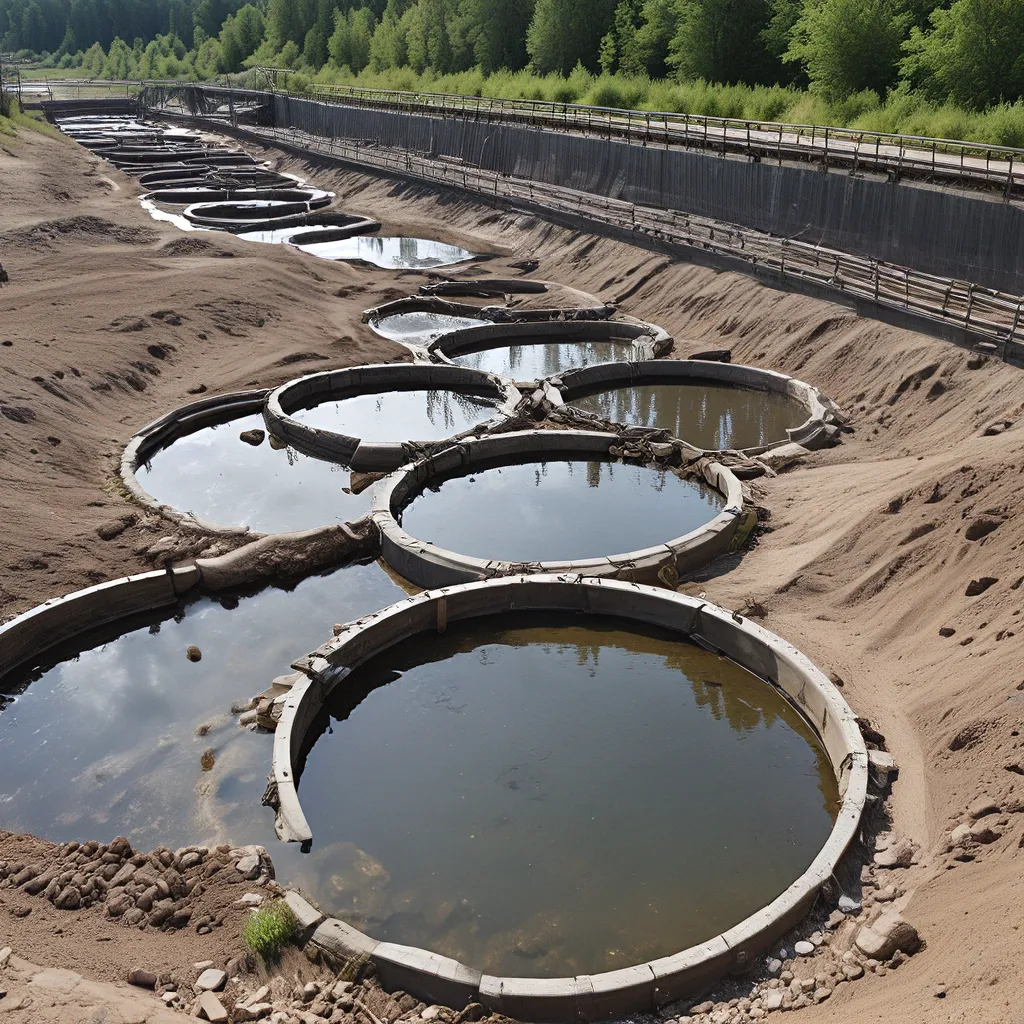
Unlocking the Power of Wastewater: A Journey towards Sustainability
As I step into the world of wastewater treatment, I’m struck by the immense potential it holds for creating a more sustainable and socially responsible future. It’s not just about managing waste – it’s about harnessing the power of this often overlooked resource to drive positive change and make a tangible difference in our communities and the environment.
Let me take you on a captivating journey that explores the intersection of wastewater treatment, corporate social responsibility, and environmental stewardship. Prepare to be surprised, inspired, and empowered as we uncover the transformative impact that wastewater management can have on our world.
The Sustainable Wastewater Revolution
The traditional view of wastewater as a nuisance to be disposed of is rapidly evolving. Forward-thinking companies and communities are now recognizing wastewater as a valuable resource that can be leveraged to create a more sustainable future. This shift in perspective is driving a revolution in the way we approach wastewater management.
At the heart of this revolution is the concept of wastewater reuse and recycling. By treating and repurposing wastewater within their operations, companies can mitigate their strain on local water sources and minimize their overall water footprint. This not only aligns with environmental regulations but also enhances corporate sustainability goals and contributes to the well-being of the communities they serve.
Innovative wastewater treatment technologies, such as membrane bioreactor (MBR) systems, are playing a crucial role in this transformation. These advanced systems enable the removal of contaminants from wastewater, ensuring that the purified effluent can be safely reused for various applications, from equipment cleaning to agricultural irrigation.
Embracing Environmental, Social, and Governance (ESG) Principles
As companies strive to strengthen their Environmental, Social, and Governance (ESG) initiatives, wastewater reuse and recycling have emerged as a powerful catalyst for progress. By integrating these practices into their business strategies, organizations are not only reducing their environmental footprint but also fostering a deeper connection with their communities and enhancing their long-term viability.
The environmental benefits of wastewater reuse are clear. By minimizing water consumption and safeguarding local water sources, companies can mitigate their impact on the natural ecosystem and contribute to the preservation of precious water resources. This proactive approach not only aligns with environmental regulations but also enhances corporate sustainability goals, turning wastewater management into a strategic asset.
But the impact of wastewater reuse extends beyond environmental considerations. Social responsibility is also at the heart of this transformative approach. By efficiently managing water resources, companies can ensure a more equitable distribution of this vital resource, contributing to the well-being of local communities. Some organizations even engage with their communities in water stewardship programs, fostering education and raising awareness about responsible water usage.
Embracing wastewater reuse also bolsters corporate governance and long-term viability. Companies that proactively manage their environmental impact tend to exhibit better risk management practices, demonstrating resilience against resource scarcity and regulatory changes. Furthermore, investors and stakeholders increasingly prioritize sustainable practices, and embracing wastewater reuse not only enhances a company’s reputation but also signifies a commitment to resilient and forward-thinking business practices.
Overcoming Challenges, Fostering Collaboration
While the benefits of wastewater reuse and recycling are undeniable, the journey is not without its challenges. Initial investment costs, technological barriers, and regulatory complexities can sometimes deter companies from taking the plunge. However, the evolving landscape presents ample opportunities for innovation, collaboration, and cost-effective solutions.
Industry leaders like Stellantis have set the stage for success, demonstrating that embracing sustainable practices can lead to tangible results. By embedding corporate social responsibility into their business practices, they have contributed to a decarbonized economy and supported their carbon net zero by 2038 target.
Collaboration among industry players, technology providers, and policymakers can foster a supportive ecosystem for advancing wastewater reuse initiatives. Governments and regulatory bodies can play a pivotal role in incentivizing and streamlining the adoption of sustainable practices through subsidies, tax benefits, and clear guidelines.
Wastewater Reuse: A Pathway to a Sustainable Future
As I reflect on the transformative potential of wastewater reuse, I can’t help but feel a sense of excitement and optimism. This innovative approach represents a strategic imperative for companies looking to enhance their ESG initiatives and make a tangible difference in the world.
By rethinking wastewater as a valuable resource, organizations can unlock a vast array of benefits that extend beyond environmental stewardship. Improved water security, enhanced community engagement, and stronger corporate governance are just a few of the compelling outcomes that wastewater reuse and recycling can deliver.
At Alpha Wastewater Services, we are committed to empowering our clients to embrace this sustainable revolution. Through our cutting-edge technologies, collaborative approach, and unwavering dedication to environmental responsibility, we are helping organizations unlock the full potential of their wastewater and drive positive change in their communities and beyond.
The journey towards a more sustainable future may present challenges, but the transformative power of wastewater reuse offers a compelling pathway for companies to enhance their ESG initiatives and contribute to the well-being of the planet. By fostering a culture of environmental stewardship and community engagement, we can collectively shape a brighter tomorrow – one where wastewater is not just a byproduct, but a catalyst for progress.
Conclusion: A Call to Action
As I conclude this exploration of wastewater treatment and social responsibility, I hope I’ve ignited a spark within you – a spark that inspires you to rethink the role of wastewater in your own organization and community.
The time is now to embrace the sustainable wastewater revolution and become a champion of environmental stewardship and social responsibility. By leveraging the power of wastewater reuse and recycling, you can make a tangible difference in preserving our precious natural resources, fostering stronger community connections, and contributing to a more resilient and responsible business ecosystem.
Join me in this transformative journey and let’s work together to create a greener, more sustainable future for all. The possibilities are endless, and the impact we can make is truly profound.